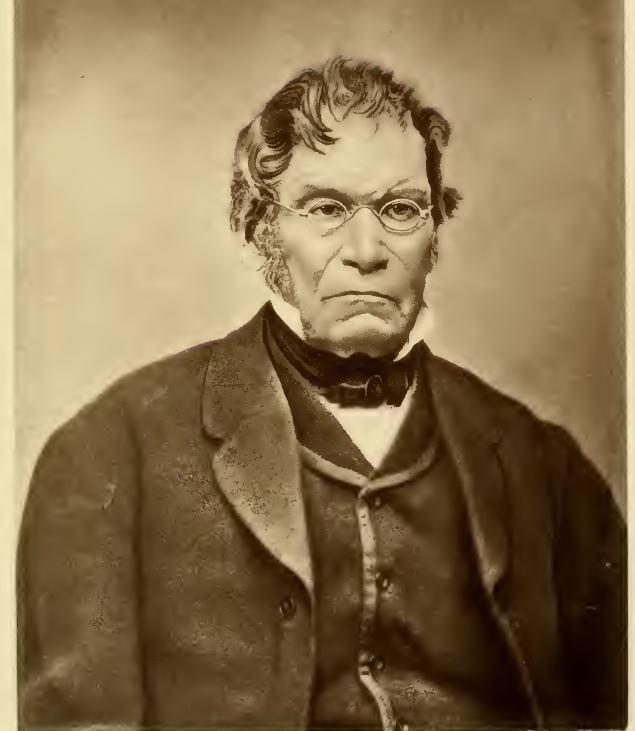Luther Stone was born on March 17, 1788 in Goshen, Hampshire, Mass. and died July 2, 1875 in Goshen, Hampshire, Mass. His parents were Ambrose Stone and Katherine Partridge. He married Mary Jenkins, born Jan. 24, 1795 in Abington, Plymouth, Mass. and died July 16, 1866 (struck by lightning), daughter of Malachi Jenkins and Mary Gurney.
He was early engaged with his father in carrying on the business of wool-carding and cloth-dressing, their works having been among the earliest, in this vicinity. In the war of 1812, they supplied a large amount of cloth for army purposes.
The increase in the number of similar factories caused this business to be given up, and in 1829, in company with his brother, F. P. Stone, he erected the well-known "Stones' Mills" and commenced the manufacture of broom and brush handles by machinery. They were among the first to engage in this business, and employed a number of hands in its prosecution, for many years, and...
He was often elected on the board of selectmen of the town, and served in this capacity fifteen years between 1820 and 1844. He represented the town in the Legislatures of 1839 and 1849. In the latter year he served on the committee on military affairs, of which Gen. Schouler was chairman. He was often employed in the settlement of estates, in his own and adjoining towns, and took a deep interest in all matters affecting the interests of his town, county, state and country. He never shirked his duty, in any department of life. Although not a church member, it was a principle with him to do his share towards the support of the Gospel, and probably no person in the town has done more, pecuniarily, for its religious interests than he has.
He was appointed Justice of the Peace in 1838, by Gov. Everett, and was re-commissioned by Gov. Briggs in 1845; By Gov. Boutwell in 1852; by Gov. Banks in 1859. He held this office twenty-eight years. He took a special interest in military affairs, and was for many years connected with a cavalry company composed of citizens of his own and neighboring towns, of which he was chosen captain in 1821. He became, in 1824, Colonel of the Regiment to which his company belonged, receiving a commission from Gov. Eustis. He resigned in 1826, and received an honorable discharge.

|